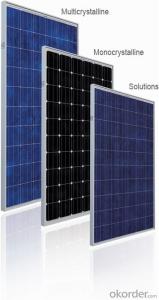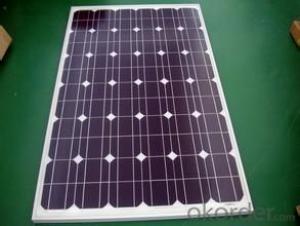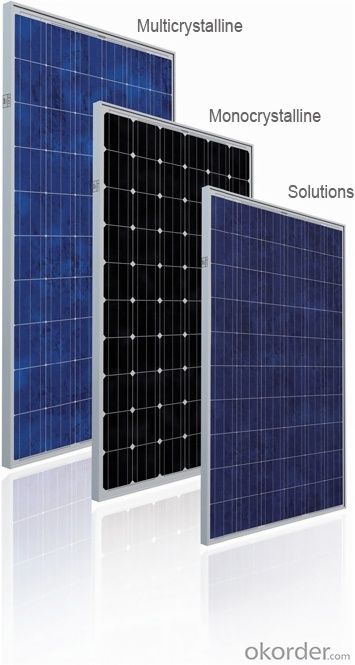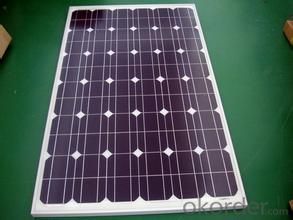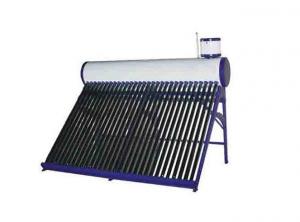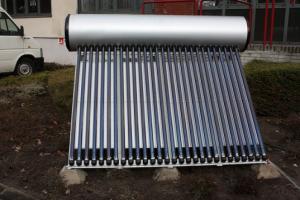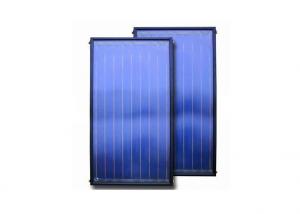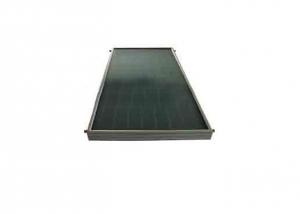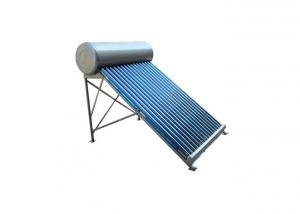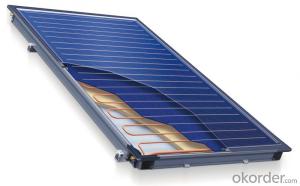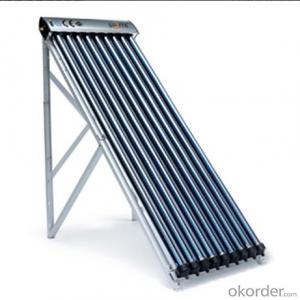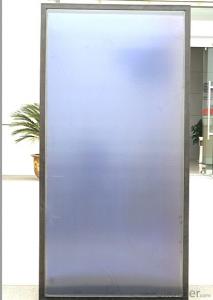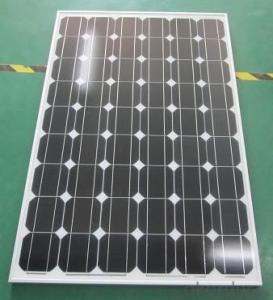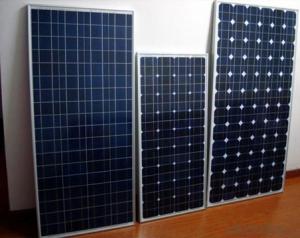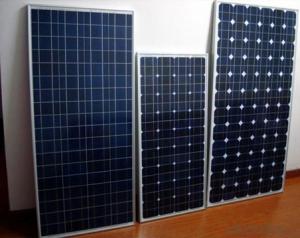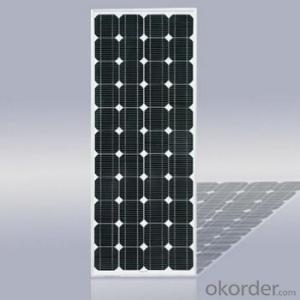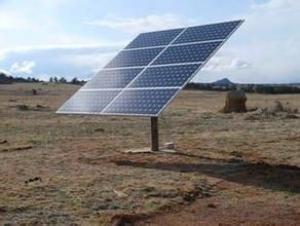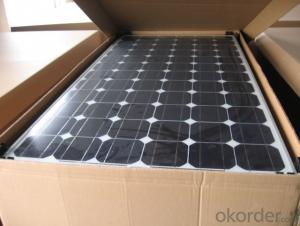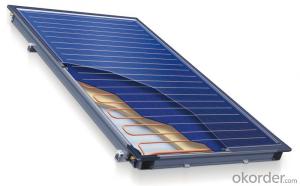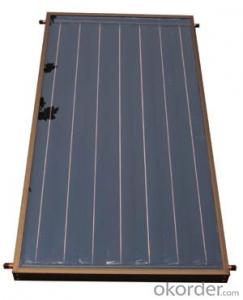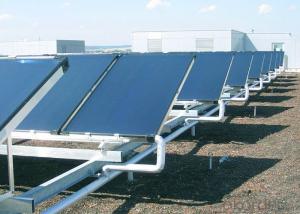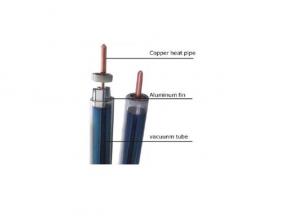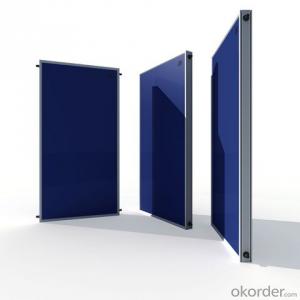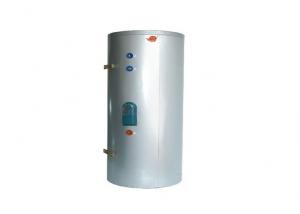Thermal Solar Collectors - Solar CNBM Monocrystalline Series Panels
- Loading Port:
- Tianjin
- Payment Terms:
- TT OR LC
- Min Order Qty:
- 1 pallet
- Supply Capability:
- 100000000 pallet/month
OKorder Service Pledge
OKorder Financial Service
You Might Also Like
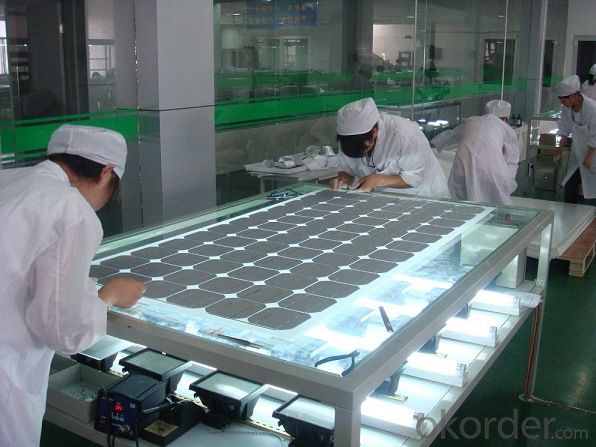
Product Description:
Solar Monocrystalline Series Panels
Introduction of Solar Monocrystalline Series Panels
CNBM Solar photovoltaic (PV) Panel is designed for large electrical power requirements. It is the optimal choice for both on-grid and off-grid power systems. CNBM Solar panel offers high performance of power per square foot of solar array. Monocrystalline silicon(c-Si): often made using the Czochralski process. Single-crystal wafer cells tend to be expensive, and because they are cut from cylindrical ingots, do not completely cover a square solar cell module without a substantial waste of refined silicon. Hence most c-Si panels have uncovered gaps at the four corners of the cells.
Characteristics of Solar Monocrystalline Series Panels
I Solar Cell : High efficiency crystalline solar cell. Even if under the weak light, the solar module can produce maximum power output.
II Tempered glass (toughened glass): Anti-reflecting coating and high transmission rate glass increase the power output and mechanical strength of solar module.
III EVA and TPT: Using high quality EVA and TPT to prevent destroying and water.
IV AI frame: Without screw, corner connection. 6 holes on the frame can be installed easily.
V Junction box: Multi function junction box with water proof.
VI Long lifetime: ≥25 years; Less power decrease
VII Good performance of preventing from atrocious weather such as wind and hails.
VIII Resisting moisture and etching effectively, not effected by geology.
Standard Test Conditions of Solar Monocrystalline Series Panels
The opto-electrical specifications shown below are stabilized values being measured at Standard Test Conditions, Irradiance: 1000W/m2, Spectrum: AM1.5 at 25°C, The info below is subject to manufacturing tolerances. Where appropriate minutes of measurement are available and are used for the dimensioning of the installation.
Advantages of Solar Monocrystalline Series Panels
• CNBM Solar performance guarantees for 25 years
• 12 years guarantee for workmanship
• Timeliness of delivery
CNBM International Corporation's products including Monocrystalline Solar Panel, Polycrystalline Solar Panel have received and enjoyed famous reputation in many countries and regions in the world .As a solar panel supplier in China, we strive to provide our customers with excellent service, superior products and unmatched value.
Characteristics of Solar Monocrystalline Series Panels
Max Power Voltage Vmp (V) | 18.4V | 17.6V |
Max Power Current Imp (A) | 6.52A | 7.39A |
Open Circuit Voltage Voc (V) | 23.0V | 22.2V |
Short Circuit Current Isc (A) | 6.97A | 7.90A |
Max Power Pm (W) | 120W | 130W |
Temperature Coefficient of Cells
NOCT | 47℃±2℃ |
Temperature Coefficients of Isc (%/℃) | 0.064 |
Temperature Coefficients of Voc (%/℃) | -0.33 |
Temperature Coefficients of Pmp (%/℃) | -0.45 |
Mechanical Data Solar Monocrystalline Series
Power | 120W/130W |
Dimension | 1190/1470×670×30mm |
Weight | 9.5kg/11.7kg |
Tolerance | ±3% |
The dimension of the modules can be changed according to the demand of clients
Limits
Operating Temperature | –40 °C to +85°C |
Storage Temperature | –40 °C to +85°C |
Max System Voltage | 700V |
Guarantee Solar Monocrystalline Series Panels
Products Guarantee | 10 yrs free from defects in materials and workmanship |
Performance Guarantee | No less than 90% within 10yrs and no less than 80% within 25yrs |
Certificates | IEC, ISO, TUV, CE |
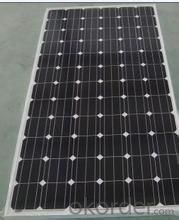
FAQ
We have organized several common questions for our clients,may help you sincerely:
1. What’s price per watt?
A: It’s depends on the quantity, delivery date and payment terms of the order. We can talk further about the detail price issue. Our products is high quality with lower price level.
2. Can you tell me the parameter of your solar panels?
We have different series of cells with different power output, both from c-si to a-si. Please take our specification sheet for your reference.
3. How do you pack your products?
We have rich experience on how to pack the panels to make sure the safety on shipment when it arrives at the destination.
4. Can you do OEM for us?
Yes, we can.
5. How long can we receive the product after purchase?
In the purchase of product within three working days, We will arrange the factory delivery as soon as possible. The perfect time of receiving is related to the state and position of customers. Commonly 7 to 10 working days can be served.
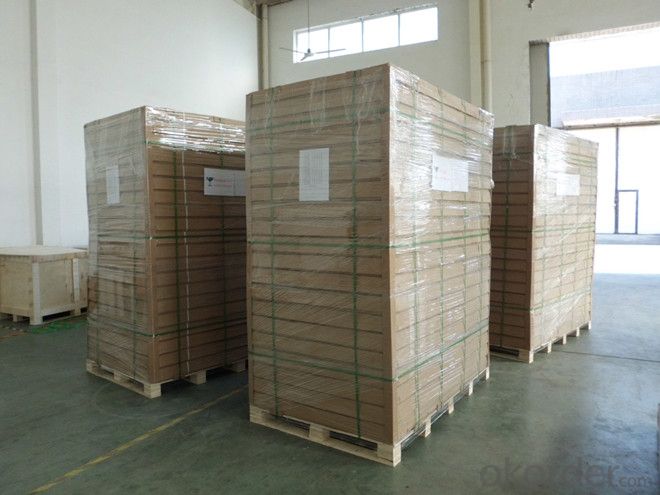
- Q: Are there any limitations to the size of a solar collector installation?
- Indeed, the size of a solar collector installation is subject to various limitations. One such limitation pertains to the space available for installation. The installation of solar collectors necessitates a certain amount of space, and if the available area is restricted, the installation of a large-scale solar collector system may not be feasible. Another limitation concerns the quantity of sunlight or solar radiation accessible in a specific location. The electricity or heat generation of solar collectors relies on sunlight, so if an area experiences limited sunlight throughout the year, the installation of a large-scale solar collector system may not be practicable. Moreover, the cost associated with the installation and maintenance of a large-scale solar collector system can impose limitations. Larger installations necessitate more equipment, materials, and labor, thereby increasing the overall cost. Furthermore, the cost of maintaining, repairing, and cleaning a larger system may also be higher, potentially constraining the size of the installation. Additionally, limitations may arise from the electrical grid capacity and infrastructure. If the local electrical grid lacks the capacity to accommodate the additional energy generated by a large-scale solar collector system, connecting it to the grid may not be possible. Upgrading the grid infrastructure can be both costly and time-consuming, thereby restricting the size of the installation. Lastly, regulatory and zoning restrictions can also impact the size of a solar collector installation. Local regulations and zoning laws may impose constraints on the size or height of solar collector installations, thereby limiting their scale. In summary, while solar collector installations can be expanded to a certain extent, factors such as available space, sunlight availability, cost, electrical grid capacity, and regulatory constraints can impose limitations on their size.
- Q: Can solar collectors be used in combination with air conditioning systems?
- Yes, solar collectors can be used in combination with air conditioning systems. Solar energy can be harnessed to power the air conditioning system, reducing the reliance on traditional energy sources and making it more sustainable and cost-effective. This combination allows for the utilization of renewable energy while maintaining a comfortable indoor environment.
- Q: Do solar collectors require direct sunlight to function?
- No, solar collectors do not necessarily require direct sunlight to function. While direct sunlight is ideal for maximum efficiency, solar collectors can still generate electricity or heat water even on cloudy or overcast days. This is because solar collectors work by harnessing the energy from sunlight, which is composed of photons. These photons can still penetrate through clouds and reach the solar panels, allowing them to convert the sunlight into usable energy. However, it is important to note that the energy output will be lower on cloudy days compared to sunny days with direct sunlight.
- Q: Are there any government incentives or rebates for installing solar collectors?
- Yes, many governments offer incentives and rebates for installing solar collectors. These incentives vary by country and region, but they often include tax credits, grants, low-interest loans, and feed-in tariffs. These incentives aim to promote the adoption of renewable energy sources, reduce greenhouse gas emissions, and achieve sustainability goals. It is advisable to check with local government authorities or renewable energy agencies to determine specific incentives available in your area.
- Q: How do solar collectors affect the insurance premiums of a property?
- Solar collectors can potentially affect insurance premiums of a property by increasing them due to the added value of the renewable energy system and its potential for damage or liability risks. However, some insurance providers also offer discounts or incentives for properties with solar collectors, as they can reduce the reliance on traditional energy sources and decrease the risk of certain types of damages. Ultimately, the impact on insurance premiums will depend on various factors, including the type and size of the solar installation, location, and the insurance company's policies.
- Q: What is the maintenance cost of a solar collector?
- The maintenance cost of a solar collector is generally low as they are designed to be durable and require minimal upkeep. Routine maintenance may involve cleaning the panels to remove dust and debris, inspecting for any damage or wear, and ensuring proper functioning of the system. Overall, the maintenance cost is relatively minimal compared to the potential energy savings and benefits of using solar collectors.
- Q: Can solar collectors be used for drying construction equipment?
- Yes, solar collectors can be used for drying construction equipment. The heat generated by the solar collectors can be utilized to dry out the equipment, helping to remove moisture and prevent rust or damage.
- Q: Can solar collectors be used in solar thermal space heating?
- Yes, solar collectors can be used in solar thermal space heating. Solar thermal space heating systems utilize solar collectors to absorb the sun's energy and convert it into heat. These collectors, often made of materials like glass or metal, capture the sun's rays and transfer the heat to a fluid, such as water or antifreeze. This heated fluid is then circulated through a system of pipes or tubes, transferring the heat to the space that needs to be heated. Solar collectors for space heating can come in different forms, including flat-plate collectors, evacuated tube collectors, or even air collectors. The choice of collector type depends on factors such as efficiency, cost, and specific heating requirements. Solar thermal space heating systems provide a sustainable and renewable alternative to conventional heating methods, as they use the sun's energy, which is abundant and free. They can be particularly effective in regions with ample sunlight, and when properly designed and installed, they can significantly reduce or even eliminate the need for traditional heating fuels like gas or oil. Additionally, solar thermal space heating systems can have a positive impact on reducing greenhouse gas emissions and dependence on fossil fuels. However, it is important to note that solar thermal space heating systems may not be suitable for all situations. Factors such as climate, building orientation, available space, and heating demand should be considered before deciding to install such a system. Additionally, proper maintenance and system design are crucial to ensure optimal performance and longevity. In conclusion, solar collectors can indeed be used in solar thermal space heating systems, providing a sustainable and cost-effective way to heat spaces using the sun's energy.
- Q: Can solar collectors be used in energy storage facilities?
- No, solar collectors cannot be used directly for energy storage. Solar collectors are used to convert sunlight into thermal or electrical energy, but they do not have the ability to store energy. Energy storage facilities require separate technologies such as batteries or pumped hydro storage to store excess energy generated by solar collectors for later use.
- Q: Are solar collectors suitable for agricultural processing facilities?
- Yes, solar collectors are suitable for agricultural processing facilities. Solar collectors, such as solar panels or solar thermal systems, can provide a sustainable and cost-effective source of energy for these facilities. Agricultural processing facilities often require a significant amount of energy for activities such as drying crops, heating water, or powering machinery. By utilizing solar collectors, these facilities can reduce their dependence on traditional energy sources, lower their operational costs, and contribute to a greener and more sustainable agricultural sector. Solar collectors can be used to generate electricity through photovoltaic (PV) panels. This electricity can power various equipment and machinery in agricultural processing facilities, reducing the need for grid electricity or generators. Additionally, excess electricity generated by solar panels can be stored in batteries or fed back into the grid, providing an additional source of income for the facility. Solar thermal systems, on the other hand, can be used to harness the sun's heat for various applications in agricultural processing. This heat can be used for drying crops, heating water for cleaning or sterilization purposes, or even for space heating during colder months. Solar thermal systems can be integrated into existing systems, such as boilers or water heaters, to supplement or replace traditional energy sources like fossil fuels. Moreover, solar collectors offer several benefits beyond energy savings. They have a low maintenance requirement and a long lifespan, making them a reliable and durable option for agricultural processing facilities. Additionally, using solar energy can help reduce greenhouse gas emissions, contributing to a cleaner and healthier environment. Overall, solar collectors are a suitable and efficient solution for agricultural processing facilities, providing them with a sustainable and reliable source of energy, reducing operational costs, and supporting environmental conservation efforts.
Send your message to us
Thermal Solar Collectors - Solar CNBM Monocrystalline Series Panels
- Loading Port:
- Tianjin
- Payment Terms:
- TT OR LC
- Min Order Qty:
- 1 pallet
- Supply Capability:
- 100000000 pallet/month
OKorder Service Pledge
OKorder Financial Service
Similar products
Hot products
Hot Searches
Related keywords
